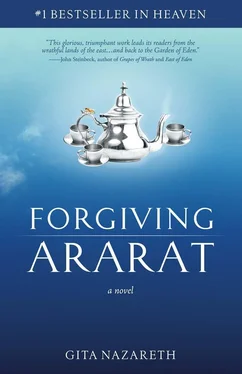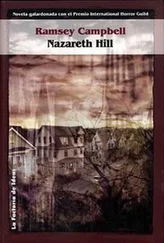“Am I being forced to represent them?” I asked. “I mean, what if I refuse?”
“Forced?” Luas said. “Certainly not. The choice is yours, but it’s a choice you have already made. That’s why you’re here. You will represent them because, like all lawyers, justice is what you crave most and you won’t rest until you have it.”
“There’s no justice here,” I said flatly. “At least not the kind I crave.”
Luas smiled condescendingly. “Perhaps you will introduce it to us then,” he said.
I thought about this for a moment and, for the first time, considered the possibility that I just might be able to help these poor souls, that this might be the reason why I was brought to Shemaya, to fix a broken judicial system. Lawyers had a long and proud tradition of bringing about reform and restoring justice to the world. I had always dreamed of doing something truly significant and grand, like Mahatma Gandhi or Martin Luther.
“Perhaps I will,” I said. “Perhaps I will.” Then I looked down and realized I was still wearing my silk pajamas, from what I had thought would be a relaxing evening at home, watching a movie and eating popcorn.
“Oh, you needn’t worry about your clothes,” Luas said, noticing my embarrassment. “The postulants can’t see us; but if you’d feel more comfortable, you may change into these.” From a desk drawer he produced the black suit, blouse, and shoes I’d been wearing since I arrived in Shemaya-the ones I’d discarded at the mall during my shopping spree.
“How did you get these?” I asked, confused.
“I didn’t get them,” he said. “You did. Go ahead, put them on, I’ll step outside.”
By telling me I got the clothes, Luas meant to remind me that I was making all of this up-my appearance and his, that is, not Shemaya itself, which existed quite independently of me, and over which I exercised no control. Even so, I took the opportunity to dress, out of respect for my profession if nothing else; pajamas were not appropriate for meeting a client on earth or in heaven, particularly a client facing the Final Judgment.
Luas returned to the office and seated himself beside me behind the desk, surrounded by darkness. The dim candles gave his face a dull orange color.
“Before I invite the postulant in,” he said, “I must warn you that there is a grave danger in this meeting, one for which I have been trying to prepare you. More than Mr. Bowles, more than your parents, your husband, or even your own child, will you come to know the postulant we are about to meet; only slightly better will you know yourself. To avoid losing your identity forever, you must employ the tactics I showed you earlier. No matter how difficult, you must continue to remind yourself of the circumstances of your disfigurement. Try to recall the smallest details: the smell of the air above the manure, the sound of the flies buzzing over the heap; the puzzled look of the cows as they watched you and your grandfather spreading their excrement across the fields; the way the heavy, wet dung, produced by the first alfalfa of the season, clotted in the bin like plaster, jamming the tines.
“Your parents had told you they were taking you to your grandparents’ farm to enjoy some time in the country, but you had heard the viciousness of their argument when your father revealed the arrangements, against your mother’s wishes, to admit her into a treatment center for alcoholics and your mother revealed her knowledge that he had been having an affair. All that had held them together was you, and you were convinced that only a crisis would hold you all together now. You considered running away, but this would only separate you from them; you had already tried modulating your grades, but the good marks only gave them confidence of your adjustment and the bad just another source for blame. Behaving and misbehaving had the same weak effect, and crying worked only temporarily and could not be sustained. You had even contrived illnesses, but doctors confirmed your health and the proper functioning of your organs.”
I could no longer bear the pain of reliving those difficult days. “Enough!” I said. “Please, stop.”
“You did not plan what to do next,” Luas continued, ignoring my discomfort. “Your grandfather had warned you to stand clear as he worked his pitchfork through the pile; he climbed down from the bin and up onto the tractor, but he left the guard off the conveyor chain. You watched the chain hesitate for a moment under the load and then break free with a bang, whirring through the gears and cogs as the tractor engine roared and the manure flew. The thought struck you in that very moment, before he could disengage the power and replace the guard. You ran up and thrust your hand into the gears. You thought you’d only cut your finger or perhaps break it; but feeling no more than the return of a firm handshake at first, you watched in astonishment and disbelief as your forearm ripped from your elbow and hurled along the conveyor like a toy on an assembly line. You stood frozen for a moment, the way one does upon first seeing one’s own reflection, watching yourself watch yourself, but not fully recognizing the image. In the moment before you lost consciousness, your body tingled-not with pain, but with the brief exaltation that you had finally succeeded in reuniting your parents and all would soon be well.”
“No more, Luas,” I begged, sobbing. “Please, stop.”
“But there is more,” Luas said callously. “So much more. This is the only way to separate yourself from the powerful memories of the postulants, and this is what must be done. Two years later, after your parents had divorced and the right sleeves of your clothes had been sewn shut, you took the witness stand in the Huntingdon County Courthouse, where you would one day practice law, and a young attorney named Bill Gwynne asked you to show the jury the mangled stump of your arm and tell them what happened. It was the most critical testimony in the case, to establish the liability of the manufacturer of the manure spreader for producing a defective product and bestow upon you and your family a small fortune in recompense. The courtroom was silent, every moist eye turned to you. You had practiced your testimony so often with Mr. Gwynne that you actually believed what you were about to say. He had promised you justice. You faced the jury and do you remember what you said?”
“Yes, yes,” I cried, traumatized and ashamed. “I remember. There’s no need for you to repeat it.”
“Oh, but I must,” Luas said. “‘I was standing on my toes,’ you told the jury, ‘trying to see what my grandfather was doing. I slipped on the wet grass and fell against the guard. I didn’t hit it very hard, but the guard gave way and my arm got caught in the gears-’ You became too emotional to go on; the memory of what happened next was too painful.”
Luas’ relentless recounting of the story was having the desired effect; so immersed did he have me in my own memories that I couldn’t possibly confuse my life with that of the postulant I was about to meet. I saw myself there on the witness stand, a ten year old girl again: the judge, robed in black, glaring down at me from the bench, old and terrifying like God; the pinch-faced stenographer yawning as she taps her keys; my grandfather, pale with guilt and remorse, nervously fondling his pipe, aching for a smoke; my grandmother waving a roll of Lifesavers at me for encouragement; my mother sitting by herself on the other side of the courtroom with her “I told you so” face, snarling at my father and grandparents; my father sucking on a Lifesaver my grandmother insisted he take, checking his watch; the defense lawyer from Pittsburgh, too slick and condescending for Huntingdon County, whispering to the vice president of the equipment manufacturer, a Texan, who crosses his legs and strokes the brown suede of his cowboy boots. To my right sits the jury who will decide the case: three farmers, a hairdresser, a housewife, and a truck mechanic. The farmers tug uncomfortably at the collars of their white dress shirts; the hairdresser, wearing too much makeup, cracks her gum, drawing the glare of the overfed tipstave with stains on his necktie; the housewife, wearing too little makeup, fusses with her hair; the truck mechanic bites his dirty fingernails, stealing glances at the hairdresser.
Читать дальше












